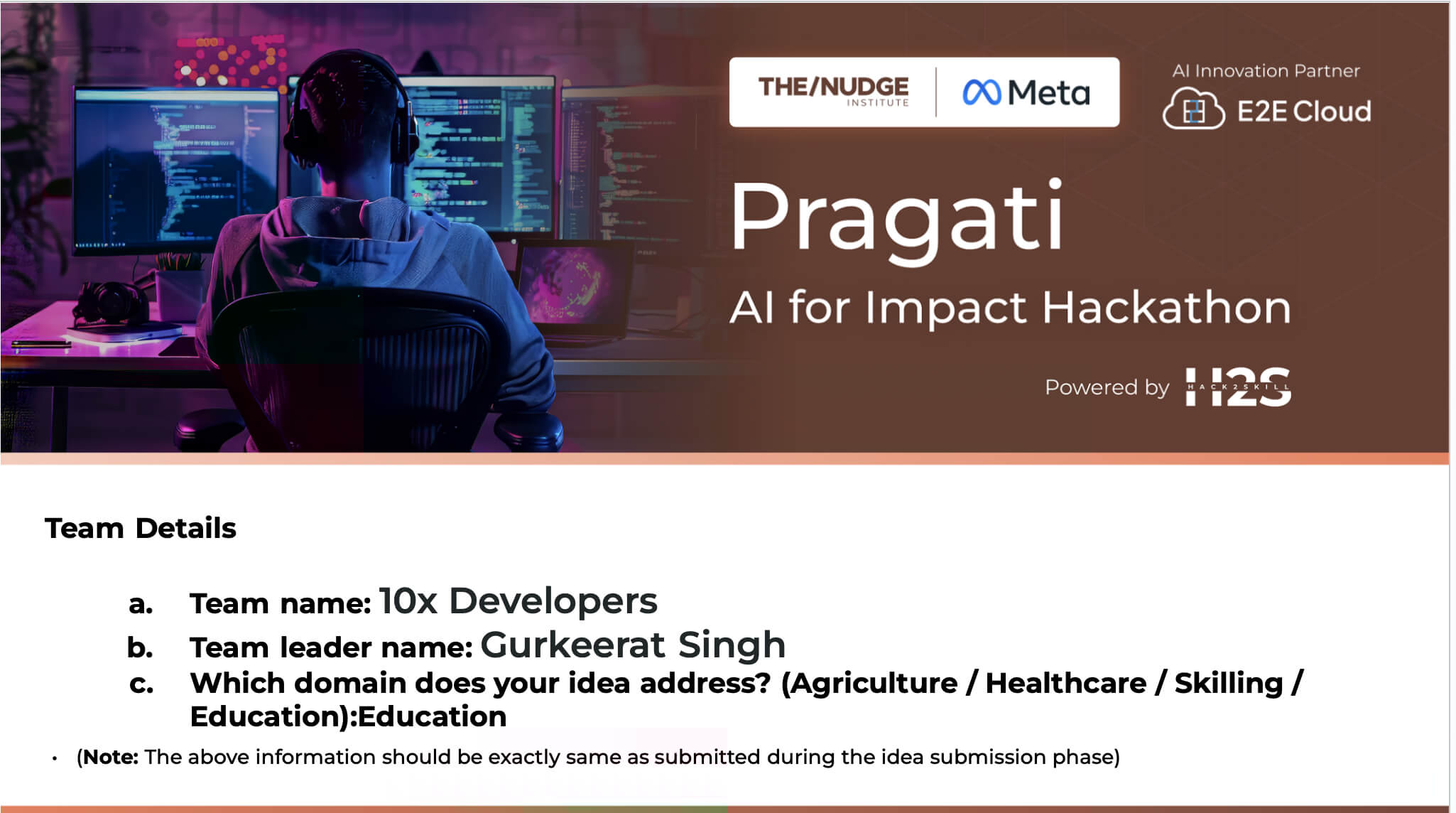NeoGurukul is an AI-powered assistant built for teachers and students — a teacher-first, multilingual app designed to function seamlessly even in low-connectivity environments. It listens to teachers’ verbal classroom notes, transcribes them, summarizes the content, and generates personalized AI-driven chat sessions for students, all localized to that specific lecture.
The project was created as part of the Pragati AI Hackathon by Meta, where our team advanced through the prototype phase and was eliminated just before the finals. Despite that, the journey of building NeoGurukul was deeply rewarding — it pushed us to design an inclusive AI solution grounded in real-world classroom challenges.
The goal is simple: empower teachers in resource-constrained classrooms.
The primary users of NeoGurukul are teachers in low-income or government schools, especially in rural and semi-urban India. These educators often juggle oversized classrooms, limited infrastructure, and heavy administrative loads. NeoGurukul is their intelligent assistant — a low-cost, multilingual tool designed to help them teach more effectively with less friction.
How It Works
- The teacher uploads lecture audio to the app.
- A locally deployed Whisper model performs speech-to-text transcription.
- The text is processed using Ollama for summarization and translation.
- Vector embeddings are created and stored in MongoDB for retrieval.
- The system returns the transcription and summary to the teacher’s interface.
- Students can initiate a chat with an AI teaching assistant, getting personalized help contextualized to that exact lecture.
Design Philosophy
NeoGurukul is built around five core principles:
- Scalable Functionality: Uses lightweight, self-hosted AI models that process and store content efficiently.
- Multilingual & Inclusive: Supports Indian languages like Hindi, powered by open-source frameworks such as Indic NLP and Bhashini.
- Teacher-Centric: Augments—not replaces—teachers with real-time support for post-class review and assistance.
- Low-Tech Compatible: Runs smoothly on low-end Android devices, ensuring reach in low-connectivity and low-resource settings.
- Open & Adaptable: Built on modular, open-source AI stacks, easily customizable by NGOs or government bodies.
Technical Highlights
NeoGurukul’s architecture is modular, self-deployable, and open-source.
With Ollama, we run efficient, fine-tuned language models locally — reducing dependency on constant internet connectivity or external cloud services. This makes NeoGurukul cost-effective, private, and scalable, especially in regions with weak network infrastructure.
The app’s multilingual framework and intuitive interface ensure quick adoption and minimal training for teachers.
Links Related to NeoGurukul:
- 💻 GitHub (Node + React Native Project): https://github.com/Keerat666/NeoGurukul
- 🧠 GitHub (Python AI Repo): https://github.com/adarshwshaw/NeoGurukul_AI
- 🎥 YouTube Demo: https://www.youtube.com/watch?v=we5QVr5z9rg
- 🧩 MVP Access: The backend currently runs on GPU-based local infrastructure for model computation. A recorded walkthrough or live demo is available upon request.
Even though NeoGurukul didn’t make it to the finals, the experience at Meta’s Pragati AI Hackathon was invaluable — it shaped the vision of building AI for accessibility and inclusion.
The mission continues: to bridge the digital divide in education by making AI local, open, and practical for every classroom. ✨
